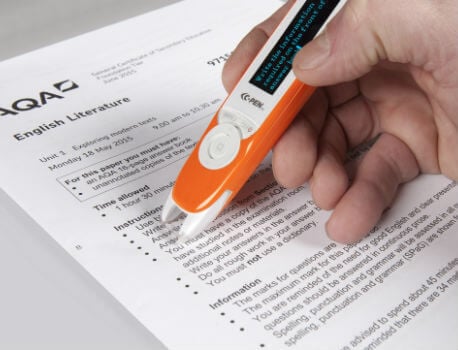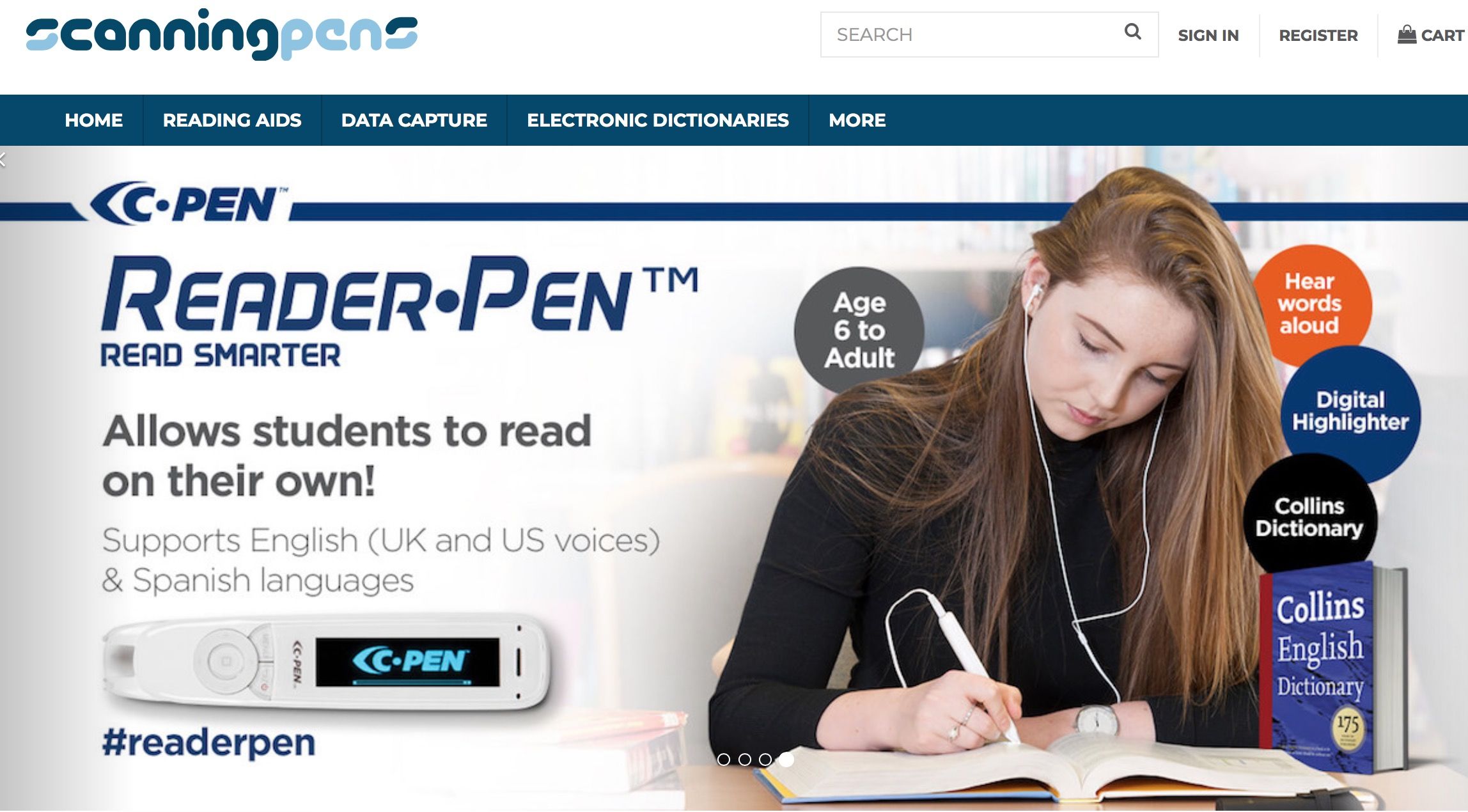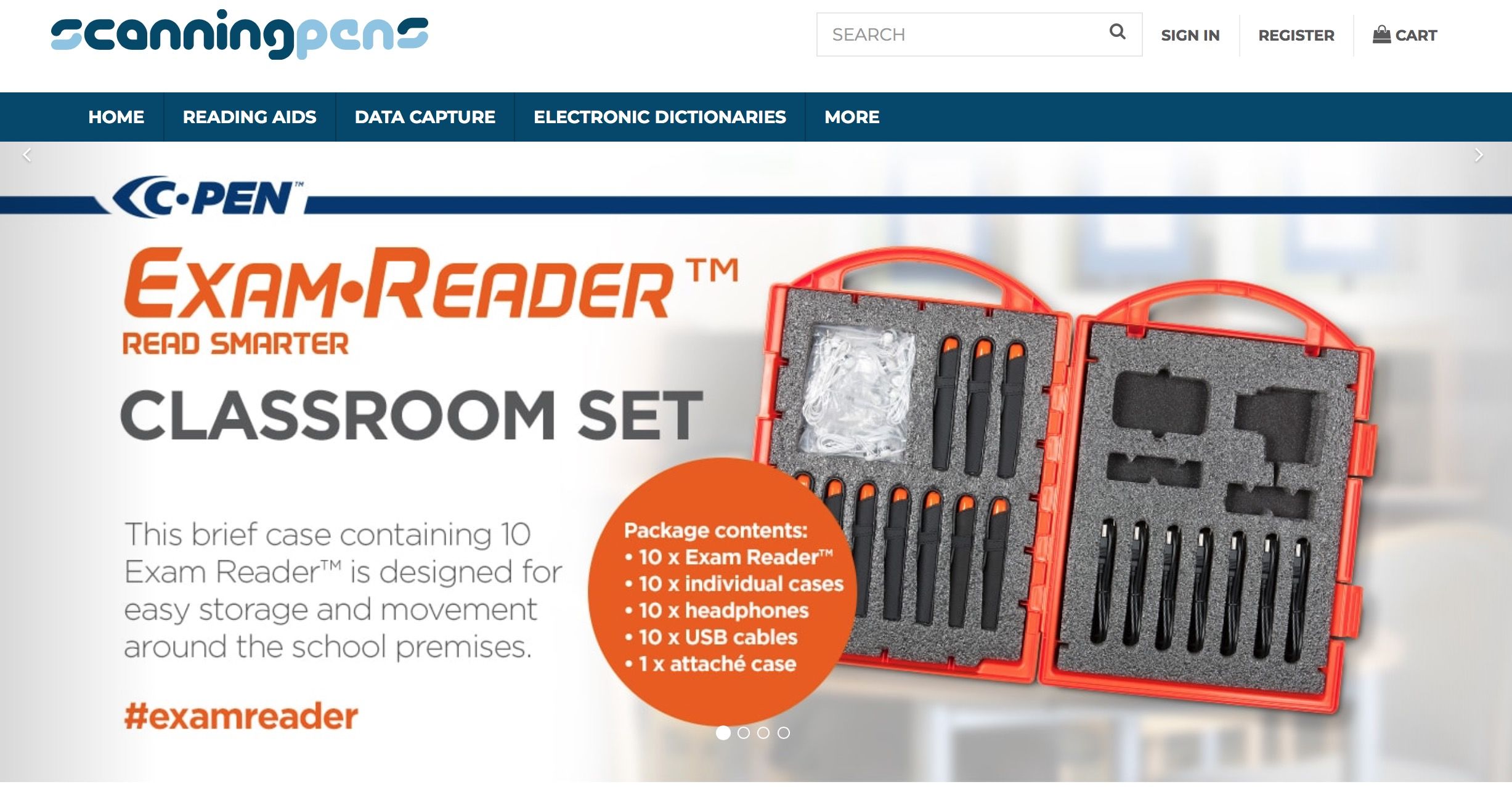 Jack Churchill, Winston Churchill’s great grandson also graciously took time out his busy schedule to talk with us about his wonderful scanning pens that are now taking the dyslexia world by storm. Scanning Pens is also one of Dyslexic Advantage newest sponsors – so he and his team are also helping support our kids programs and very newsletter you’re reading now.
Jack Churchill, Winston Churchill’s great grandson also graciously took time out his busy schedule to talk with us about his wonderful scanning pens that are now taking the dyslexia world by storm. Scanning Pens is also one of Dyslexic Advantage newest sponsors – so he and his team are also helping support our kids programs and very newsletter you’re reading now.
When Jack first got Scanning Pens rolling, there were all sorts of reading pens on the market, but they lacked essential features and usability characteristics that were necessary to allow people of all ages and backgrounds to use them. From his college years, he knew how helpful it would be to have a pocket-sized device that could be taken anywhere without requiring Internet access or a computer and could convert text on a printed page to spoken words. He knew the pen had to have a good voice and accuracy, and things came together with some technical advances and institutional changes where educational leaders recognized the importance of preparing students to be successful in the world and for instance, not dependent on human readers. The pens also solved another problem for schools – having enough readers on hand who could read tests to every student.
Jack also saw the possibility of allowing students to use it for exams by creating a specific exam reading pen that had the dictionary locked and no Internet access. Now the College Board, JCQ GCSE’s in the UK allow students to use them on their exams! An even newer development is the UK allows students to access the reading pens whether or not they have formal accommodations requests on file. Assessors reasoned that people would only request the pens if they actually need it.
“Even the College Board, allows you to tick the box “Other” and then you can use the pen in their exams.”
Jack Churchill
This policy is a tremendous breakthrough for the dyslexic community – but because it’s so new, be prepared to educate others about it as well as advocate or self-advocate for its use. The world is all too far from the goal of universal design – design of materials and environments that are accessible to the greatest number of people. As members of the dyslexic community are all too aware tests, classroom materials, employment and legal forms, performance evaluations, and all sorts of licensing exams are designed without dyslexic users in mind.

“Many of the participants did benefit from development of vocabulary, reading comprehension, confidence, and independence…” – Professor T. Mortimore, Institute for Education Bath Spa University, UK
A critical feature of the Exam Pen is that it cannot be used to cheat because there is no Internet access, recorder, data capture, or dictionary. This also means the pen could be used in corporate situations that include proprietary documents that are not allowed to leave the premises.
At Amazon, for instance, one employee told us that his work group had a practice of meeting 20 minutes before the formal meeting to be able to silently read proprietary materials before the group discussion. Because this person couldn’t read fast enough under those conditions, he bluff-read then listened to the discussion to figure out what was going on.
Having the option to use a corporate reading pen with headphones could completely alleviate this issue.
During my conversation with Jack, I learned about university-based study that found greater learning with the use of the pen. There’s a common debate about whether assistive technology aids learning or minimizes it by providing a ‘crutch’. This study suggest pen users learn more new words, persist and reading complex texts, boosting learning rather than discouraging it.
















